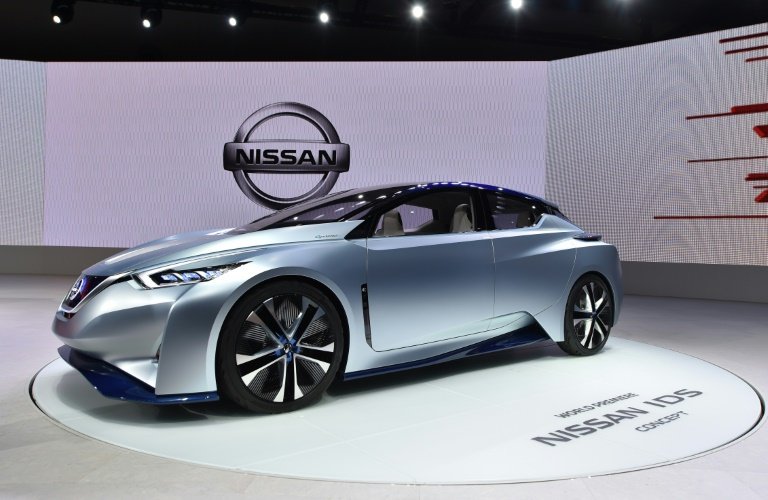
The Tokyo Motor Show kicked off Wednesday with a focus on cars that drive themselves, eco-friendly technologies, and a concept vehicle with tablet-style touch screens aimed at a digital generation.
Nissan unveiled an autonomous electric vehicle, which it said would “revolutionise the relationship between car and driver, and future mobility.”
The motor show’s 44th edition, which runs until November 8, features 160 exhibitors including global auto giants and parts suppliers from a dozen countries.
It starts a week after Honda said it would put a commercialised self-driving car on the road by 2020, as automakers bet on vehicles that can drive and, in some case, park themselves.
Its bigger rival Toyota has plans to roll out an autonomous car by 2020, when Tokyo hosts the Olympics.
Nissan chief executive Carlos Ghosn said Nissan was on track to put the self-driving technology in multiple vehicles by 2020, and the company is aiming to put an experimental automated car on Japan’s highways as soon as next year.
“It compensates for human error, which causes more than 90 percent of all car accidents,” Ghosn said of the emerging technology.
“As a result, time spent behind wheel is safer, cleaner, more efficient and more fun,” he said in a briefing booth packed with reporters.
Google has been testing self-driving cars in Silicon Valley, as have US-based Tesla and General Motors.
But the technology is far from perfect and is widely seen as being limited in the short term to highway driving rather than urban traffic jams.
Japan’s auto giants will also be showing off their latest concept cars including Toyota’s Kikai.
The eye-popping vehicle conjures images of the Terminator films with some of a usually hidden underbelly — including fuel tank and hoses — exposed, giving an inside look at the car’s machinery.
– ‘Digital space’ –
Nissan, a leader in electric vehicles, is showing a concept car with knobs and buttons replaced by tablet-style touch screens featuring controls and maps on a white instrument panel.
Music, videogames and movies can also be played on the screens, in a nod to the smartphone generation.
“The car becomes a digital space when it’s parked,” said Nissan’s product planning general manager Hidemi Sasaki.
Toyota and Honda are also exhibiting their latest fuel-cell offerings, seen as the holy grail of green cars because they emit nothing but water vapour from the tailpipe and can operate on renewable hydrogen gas.
Toyota last year started selling the world’s first mass market fuel-cell car in Japan, the four-door Mirai.
The auto giant is hoping to sell tens of thousands of the eco-friendly vehicle over the next decade, as it looks to stop producing fossil-fuel based cars altogether by 2050.
Honda’s rival fuel-cell features a cruising range of more than 700 kilometres (430 miles), and generates electricity that could help supply power to a local community in an emergency situation, it said.
Toyota’s FCV Plus similarly functions as a power source for homes and communities as the auto giant aims to turn fuel cell vehicles from “eco-cars into energy-cars”, it said.
The firm’s hybrid gasoline-electric offerings, including the Prius, have sold more than eight million units since their launch in 1997.
But a limited driving range and lack of refuelling stations have hampered development of fuel-cell and all-electric cars, which environmentalists say could play a vital role in cutting greenhouse gas emissions and slowing global warming.
Among the overseas automakers attending are BMW, Peugeot Citroen, Porsche, Jaguar and crisis-hit Volkswagen, which is embroiled in one of the biggest scandals in the history of the automobile sector.
The German auto giant has admitted it had fitted 11 million of its vehicles with software designed to cheat official checks.
